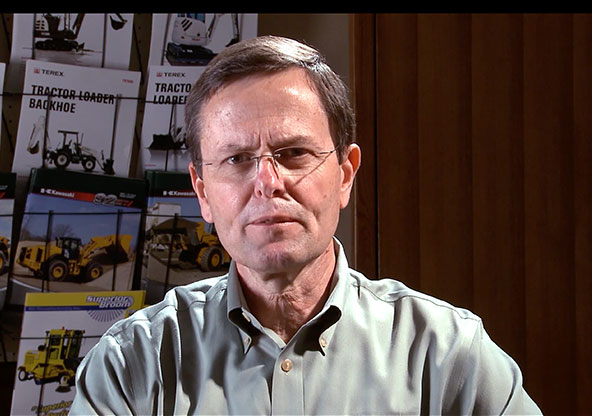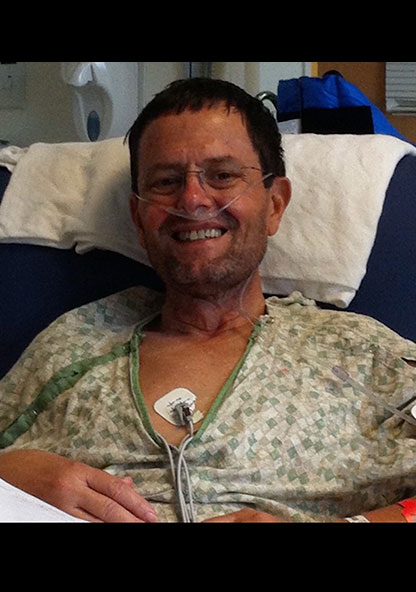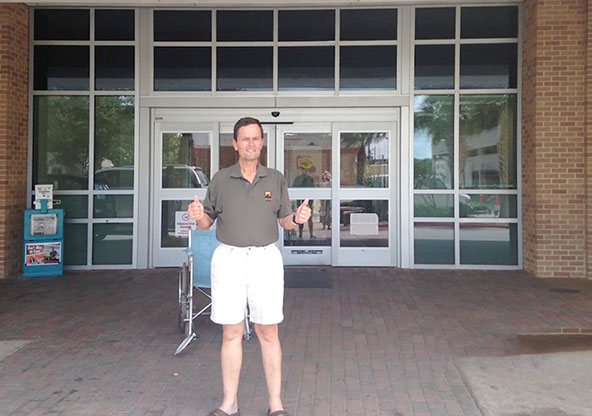Bill Lathrop's Fight for Life After Sudden Cardiac Death

Bill Lathrop, a man of deep faith, faced the ultimate test when he suffered a heart attack a decade ago
It all began on Oct. 1, 2013 at their home in Corpus Christi, TX.
Around 12:15 a.m., his wife Cathy was jolted awake by strange sounds coming from her husband. She called to him, but he did not respond. Cathy then flicked on the lights, only to discover that Bill was changing color, gasping for air. It was almost as if he were choking.
Frantic, she called 911 and then administered CPR, despite the fact that she wasn't a trained professional.
EMTs arrived quickly, but time was slipping away.
"It might've been, I don't know, a couple of minutes, maybe? Three minutes?" said Martin Vara when recalling how long it took for EMTs to get to Bill. Vara is a paramedic for Corpus Christi EMS who was on call that night. He estimates that Bill was without oxygen for 15 minutes.
A Grave Outlook
Without oxygen, the brain can undergo a condition known as cerebral hypoxia, according to WebMD. After just 10 minutes without oxygen, brain death can occur, in which there is no brain activity. Long-term complications for those who do recover include problems with balance, memory loss, vision, and speech problems.
Bill was well past 10 minutes, so every second was crucial.
But Vara said he remained hopeful as Bill was responding to the interventions and medications that they gave him. It seemed as though there was still something irritating Bill's heart as it kept going into a fatal rhythm.
He was taken to CHRISTUS Spohn Shoreline, where he was hooked on a ventilator and given medications to keep his blood pressure up. Once he was assessed in the emergency room, his prognosis left little room for optimism.
His heart was very weak and was still falling into a fatal rhythm.
His daughter, Sarah, remembers two distinct prayers she prayed that night.
First, she asked God to move in such a mighty and miraculous way that no man could deny that it was God.
Second, she wanted her father to walk out of the hospital in one piece. At 39 weeks pregnant at the time, Sarah said her main fear was that she would end up planning her father's funeral instead of celebrating the birth of her baby with her dad.
Sarah wasn't the only one praying for Bill's speedy recovery. Pastor Justin Ross recalled many members of his flock pouring in at 8 a.m. at their church to join hands in prayer.
"As soon as this happened, there was a call that went out to pray like never before," Ross said.
Many friends across the world left phone messages and emails to check in on Bill and his family while at the hospital. Friends from Ireland, Brazil, New Zealand, England, and even Africa all sent their support.
Miraculously Clinging to Life
Meanwhile, Bill was still clinging to life in a medically induced coma. His family requested a consultation with Corpus Christi Heart Clinic because they had treated several people in Bill's family before.
Thankfully, Dr. Thomas Alexander, a cardiologist at the clinic, was on call that night. Alexander arrived at CHRISTUS Spohn Shoreline to assess the situation.
He ascertained that Bill's heart was partially functioning and that he had experienced "sudden cardiac death," which usually occurs when the heart stops beating or is not beating sufficiently to maintain perfusion and life.
Dr. Alexander decided on an experimental treatment that involved placing a cooling tube in Bill to preserve his brain function. It's a process otherwise known as therapeutic hypothermia treatment, which was used locally on stroke patients in the past. It was considered a last resort in Bill's situation, but this was a desperate one.
Even with this treatment, the statistics were grave.
"The survival to walking out of a hospital statistically is only 6%," Dr. Alexander said. He added that while one can hope to recover some neurological function, a return to full functionality is not guaranteed.
It's exactly what Bill's family was afraid of. Sarah says knowing that her father was still alive was just the beginning.
Their next major concern was irreversible brain and organ damage, which could lead to severe cognitive and physical disabilities—something neither Bill's family nor friends wanted for him.
Experimental Treatment
For the next 4-6 hours, Bill was cooled to a temperature of about 33 degrees Celsius, or 91.4 degrees Fahrenheit.
He was left there at that temperature for another 24 hours.
After several days of the therapeutic hyperthermia treatment, Bill finally woke up.

Despite gaps in his memory, Bill describes his first moments waking up as being at perfect peace.
"I never was anxious when they were telling me what had happened," Bill said. "I never thought of it as a debilitating event. I told everybody, I said, 'man, God's on my side.'"
At his side as well, quite literally, were Bill's nurses, who, unlike Bill, were utterly astonished at what took place, as were his friends and family.
Dr. Alexander hails Bill as a walking miracle, crediting the cooling device for his recovery.
An intracardiac device (ICD) was also implanted in Bill’s heart to prevent further lethal rhythms.
The Business of Doing the Impossible

On Oct. 11, 2013, after 11 days in intensive care, Bill walked out of CHRISTUS Spohn Shoreline Hospital, a stark contrast to being wheeled in there unresponsive.
Bill's life has changed in many ways since then. He's since made it his goal to continue running—something he was able to start up again after three months in cardiac rehab.
Today, he keeps an annual tradition of going to Spohn Shoreline to run every Oct. 1 as a remembrance of the miracle that transpired there.
Whenever he goes to his cardiology checkup every six months, he's reminded yet again of how blessed he is and says he is eternally grateful to everyone who helped save his life.
"Every time I touch my chest where the ICD is placed, I am thankful for modern medicine and technology that helps to keep me healthy," Bill said.
His message to others facing similar trials is to not let a diagnosis keep them from living.
"I am convinced that God uses medical teams and first responders every day to perform miracles because I am one," Bill said. "Pray big. God is in the business of doing the impossible."



